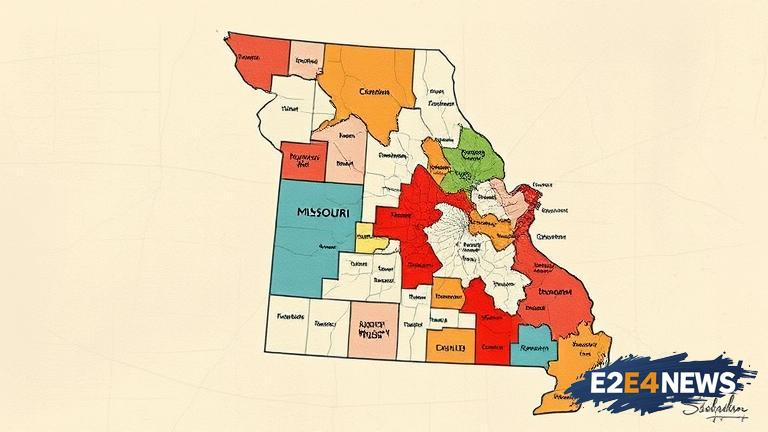The state of Missouri is once again at the center of a heated debate over redistricting, a process that has been marred by controversy and allegations of gerrymandering. The latest developments have sparked concerns among voters and lawmakers alike, with many questioning the motivations behind the proposed changes. At the heart of the issue is the Republican-led legislature’s push to redraw the state’s congressional districts, a move that could potentially favor their party in future elections. Critics argue that the new maps are designed to dilute the voting power of minority communities and consolidate Republican strongholds. The redistricting process has been a contentious issue in Missouri for years, with the state’s congressional districts having been redrawn multiple times in recent decades. The current maps were drawn in 2011, following the 2010 census, and have been the subject of numerous lawsuits and challenges. The proposed new maps would significantly alter the boundaries of several districts, potentially pitting incumbent lawmakers against each other in future elections. The changes could also lead to a shift in the state’s electoral balance, with some districts becoming more Republican-leaning and others more Democratic-leaning. The redistricting process is overseen by the Missouri General Assembly, which is responsible for approving new district maps. However, the process has been criticized for being overly partisan and lacking transparency. Lawmakers have been accused of using gerrymandering tactics to manipulate the electoral map and maintain their party’s grip on power. The issue has sparked outrage among voting rights groups and community organizations, which argue that the proposed maps are designed to disenfranchise minority voters and undermine the democratic process. The controversy has also drawn attention from national organizations, with many calling for reforms to the redistricting process to prevent gerrymandering and ensure that electoral maps are drawn in a fair and impartial manner. Despite the criticism, lawmakers have pushed forward with the proposed maps, arguing that they are necessary to ensure that the state’s congressional districts are fairly represented. The issue is likely to be decided in the coming months, with the fate of Missouri’s electoral landscape hanging in the balance. The controversy has significant implications for the state’s voters, who could see their voting power diminished or enhanced depending on the outcome. The redistricting process has also sparked concerns about the impact on local communities, with some arguing that the changes could lead to a loss of representation and resources. As the debate continues to unfold, it remains to be seen how the issue will be resolved and what the ultimate impact will be on the state’s electoral landscape. The controversy has highlighted the need for reforms to the redistricting process, with many calling for independent commissions to oversee the drawing of electoral maps. The issue has also sparked a wider debate about the role of gerrymandering in American politics, with many arguing that it is a major contributor to the polarization and gridlock that has come to characterize the country’s electoral system. Ultimately, the outcome of the redistricting controversy in Missouri will have significant implications for the state’s voters and the future of American democracy. The state’s lawmakers must carefully consider the potential consequences of their actions and work to ensure that the electoral maps are drawn in a fair and impartial manner. The controversy has also highlighted the importance of voter engagement and participation in the electoral process, with many arguing that it is essential for citizens to make their voices heard and demand fair representation. As the issue continues to evolve, it is likely that the redistricting controversy in Missouri will remain a major topic of discussion and debate in the months and years to come.
